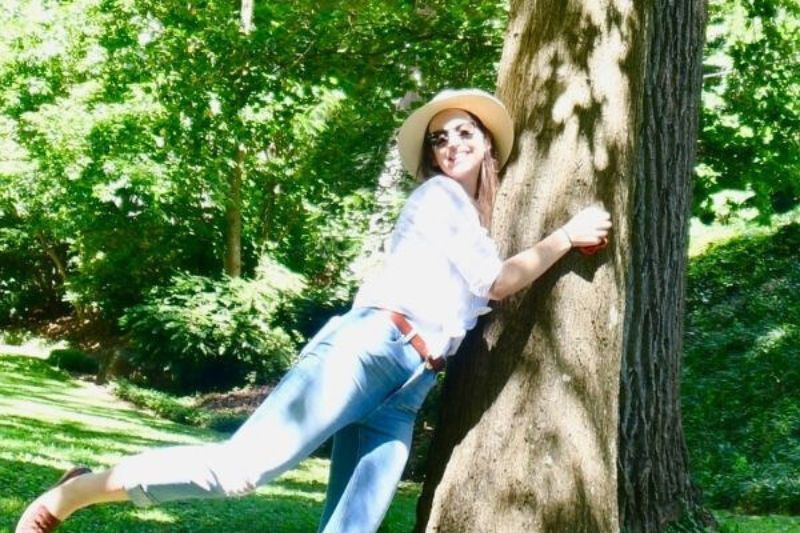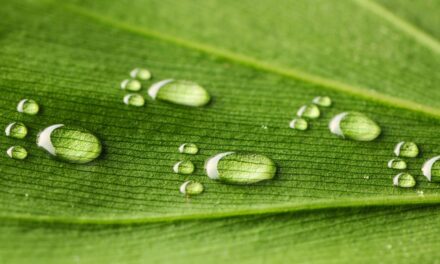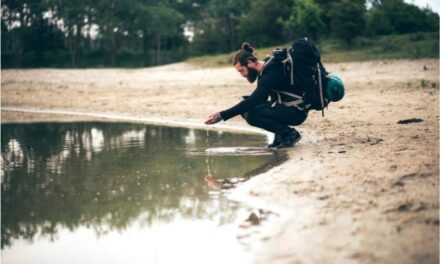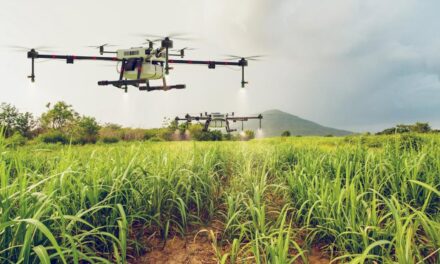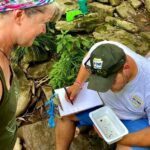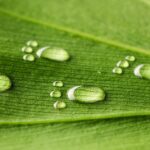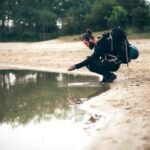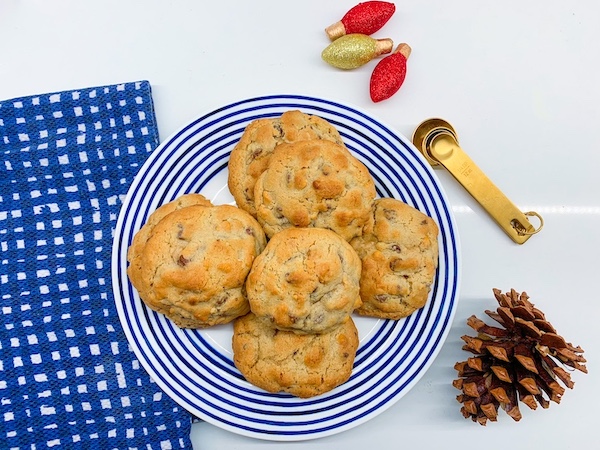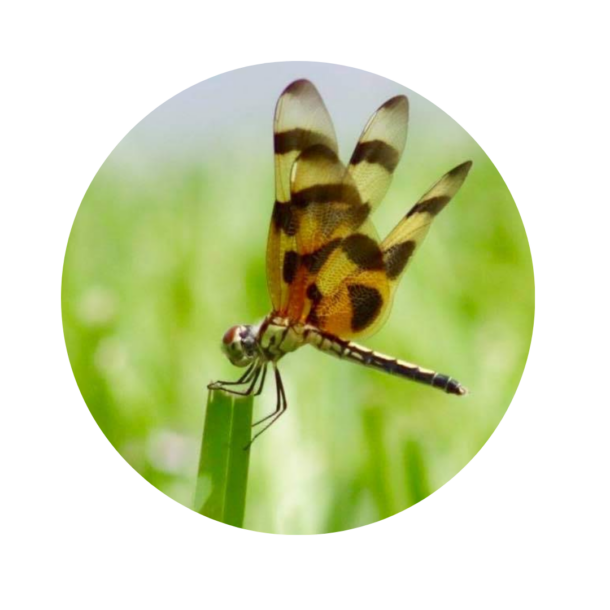Lesley’s First Tip: Everybody’s Sustainability Journey Looks Different. Choose Joyful Changes that Work for You.
Lesley Dennison, Head of Product Development, joined the One Planet Life team near the start of the COVID-19 pandemic. She was already looking for something new, feeling burned out from her role in software consulting.
“I spent the first part of my career testing software, bouncing from project to project,” she said. “I knew that I wanted to break out of that a little bit. So when there was an opportunity to take over the whole app development process – from finding design and development agencies to building the app from the ground up – it was a chance that I jumped on.”
Sustainability has always been in the back of Dennison’s mind, but it wasn’t until joining the One Planet Life team that she felt empowered by making changes in her own life.
“Personally, I never felt like the things that I did would actually make a difference,” she said. “When I joined OPL and Lorie [Buckingham, Founder] and I started actually talking through the data of some of these joyful changes, it was like, wow I can actually make a huge difference just by cutting down the amount of beef that I eat – and that’s just me alone.”
Having data that showed just how much of an impact these changes can make was a huge inspiration for Dennison to actually take it seriously.
In fact, One Planet Life helped Dennison shift her perspective to what was really important in her own eco-journey.
“Joining OPL was a big wake-up call for me to just look at things like my food consumption, like trying to eat what I have in the pantry before it expires,” she said. “For example, I try to have weeks where I challenge myself to make lunches using only the things in my pantry and fridge. You can come up with a lot of creative meals when you look at what you have with a critical eye!”
Lesley also mentioned that after compiling a huge backlog of makeup and skincare products, she’s focusing on trying to use those things up before buying anything new.
Consuming less in the first place and taking care to extend the life of products already at home has become a big part of Dennison’s journey.
Making sure to properly follow washing instructions to extend the life of her closet, as well as reusing the plastic containers she already has in her kitchen instead of buying new ones, have been simple changes that can save time, money, and emissions.
“A lot of people think that to live a really sustainable life, you need to throw out everything wasteful and buy all new, sustainable stuff,” she said. “Those things are great, and you should aim to replace things with sustainable alternatives when they wear out.”
A Buy Nothing Project group in Dennison’s Atlanta neighborhood has helped reduce consumption.
The Project is considered a “Benefit Corporation, tasked by legally-binding charter with performing a public good,” according to their website. At the time of this publication, the Buy Nothing Project boasts over 7 million members across more than 128,000 communities worldwide.
“It’s a really great way to meet other people in your community that are like-minded,” she said. “You might be surprised by the wide variety of things people offer and the things people end up needing. Sharing and borrowing are great ways to consume less. There might only be a need for one leaf blower on your street instead of every family having their own.”
Celebrating more of a “lending economy” helps cut down on unnecessary purchases, therefore cutting excessive waste. Dennison’s local group has grown big enough that they’ve splintered off new groups.
Another great sustainability resource is the local library – and for reasons above and beyond what you may immediately think.
“One of the other things that I am very passionate about when it comes to sustainability is the library,” Dennison said. “You can find me at the library at least once a week checking out books, but there is so much stuff that the library offers that a lot of people don’t know about. My library has passes to local museums that you can check out for the day; the one in my hometown has a whole maker area with 3D printers, and I’ve heard of others where you can check out things like fishing rods and power tools.”
Eco-friendly living isn’t always easy, though.
One aspect of Dennison’s journey that’s been a challenge is recycling. Hopelessness crept in when she realized just how much recycling gets thrown away from contamination. But through a little bit of research, she learned of some helpful local resources to combat the problem.
Every month or two, Dennison makes the trip to a center for hard-to-recycle materials. Locals can drop off items such as glass, chemicals, old mattresses, and flimsy, single-use plastics.
“It’s free, and it’s easy,” Dennison said. “You just drive around, drop off all your stuff, and you know that it’s getting disposed of properly.”
In addition to recycling, Dennison has also started implementing composting in her home.
“Because we live in an urban area, we use a composting service,” she said. “I think we’ve been doing an okay job, but when you’re in a rush at the end of the day, trying to make dinner, it’s a lot easier to just dump things in the trash than to separate them and deal with them with care. We’re trying to be a lot better about actually doing the work. It gets easier every time, every week that you do it. That’s a big focus for us.”
That’s the great thing about making Joyful Changes and sticking with them – they can become Lifestyle Habits. Establishing a routine can really help make the transition to sustainable living easy. With the One Planet Life App, you can see, in real-time, just how many emissions are saved through these individual Joyful Changes. This data is a huge aspect of what encourages Dennison on her sustainability journey.
Realizing that the path to sustainable living varies from one person to the next is also important to keep in mind.
“I think the other lightbulb moment I had was that everybody’s eco-journey looks different,” Dennison said. “It’s okay to start really small and find the things that are true for you. Maybe it’s not realistic for you to become a vegetarian because your kids are picky eaters and that’s okay. But maybe you work from home, and that makes a huge difference because you’re not driving. Just starting small and finding something that works for you – you can make a big difference that way.”
The staff at One Planet Life are serious about sustainable living. That’s why we decided to share the struggles and successes of our individual sustainability journeys. We will share tips directly from our team members, curated through authentic personal experience. We hope that by sharing our stories, we can help foster a community committed to helping each other – and the planet!
Read about One Planet Life Founder Lorie Buckingham’s sustainability Journey.
Read about One Planet Life Master Naturalist Yvonne Dwyer’s sustainability Journey.
Read about Kristina Shane’s eco-journey and how she manages to bring the family along.

